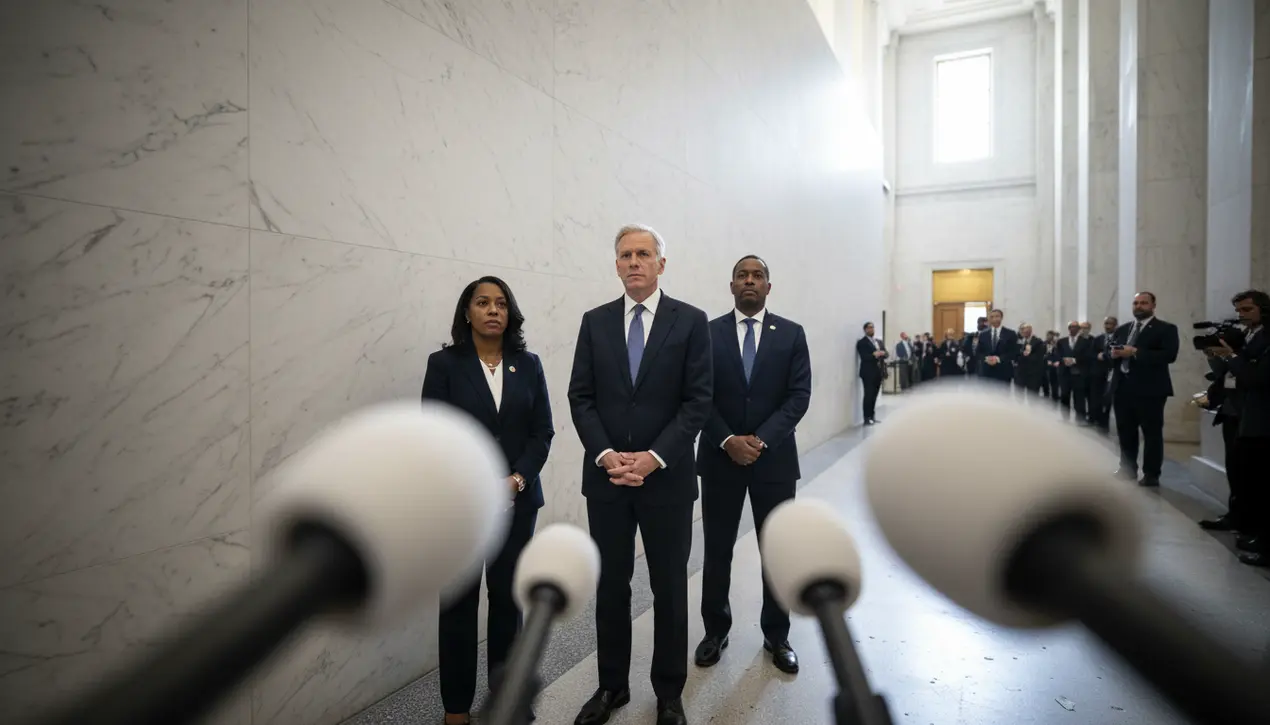
Politicscourts & investigationsLegal Precedents
Judge Dismisses Cases Against Comey and NY Attorney General James
RO
Robert Hayes
5 hours ago7 min read
In a significant judicial ruling that reverberates through the corridors of American power, federal district court judges have formally dismissed the long-pending civil cases against former FBI Director James Comey and New York Attorney General Letitia James, delivering a stark rebuke to the persistent campaign for their prosecution championed by former President Donald Trump. The dismissals, grounded in a comprehensive lack of evidentiary merit and a failure to establish legal standing, effectively close a contentious chapter of politically motivated legal warfare that has defined the post-presidency of Donald J.Trump, who for years has publicly and vociferously declared both figures 'guilty as hell' for their roles in investigations touching his orbit. This outcome is far more than a simple legal footnote; it is a profound affirmation of the judiciary's role as a bulwark against the weaponization of the legal system for personal and political vendettas, a principle that finds historical parallel in the judiciary's resistance to the excesses of the Nixon administration during the Watergate crisis.The case against James Comey, stemming from his handling of the Hillary Clinton email investigation and his subsequent memoirs, was systematically dismantled by the court, which highlighted the absence of any prosecutable offense, while the litigation targeting Attorney General James, a relentless legal adversary of the Trump Organization, was dismissed as a frivolous attempt to intimidate a state official for executing her sworn duties. This judicial pushback underscores a foundational American doctrine: that no individual, regardless of their station or political influence, is entitled to use the courts as a cudgel to silence critics or punish opponents.The ramifications of this decision extend beyond the immediate parties, sending a clear signal to state attorneys general and federal law enforcement officials that they can operate without fear of retaliatory, baseless lawsuits from powerful political entities, thereby preserving the integrity of independent law enforcement. For Donald Trump, this represents another in a string of legal setbacks where his rhetoric has failed to translate into judicial victory, a pattern that political historians might compare to the failed impeachments or the court-blocked travel bans, each instance chipping away at the efficacy of his 'outsider versus the system' narrative.Conversely, for James and Comey, the dismissals offer a form of vindication, solidifying their public personas as figures who withstood immense pressure, though their legacies remain deeply polarized in the eyes of the American public. Looking forward, this ruling may well temper the enthusiasm for similar litigious strategies by other political actors, establishing a higher barrier for lawsuits that are transparently political in nature.It reinforces a critical, albeit fragile, firewall in American democracy, one that separates the raw political arena from the sober halls of justice, a separation that has been tested throughout history but remains essential for the republic's survival. As the 2024 election cycle looms, this decision will undoubtedly be cited as both a victory for the rule of law and, in certain quarters, as evidence of a 'deep state' victory, ensuring that the legal and political battles of the Trump era will continue to shape the nation's discourse for years to come.
#featured
#James Comey
#Letitia James
#Donald Trump
#legal dismissal
#FBI
#New York Attorney General
#courts
Stay Informed. Act Smarter.
Get weekly highlights, major headlines, and expert insights — then put your knowledge to work in our live prediction markets.
Comments
Loading comments...
© 2025 Outpoll Service LTD. All rights reserved.